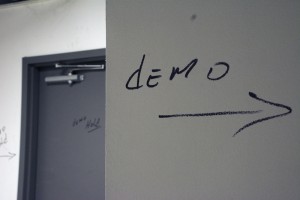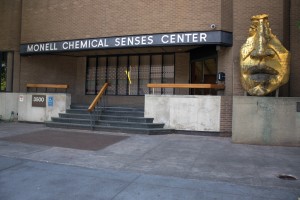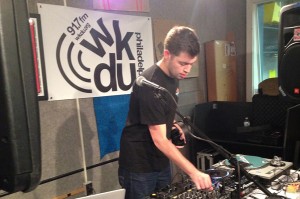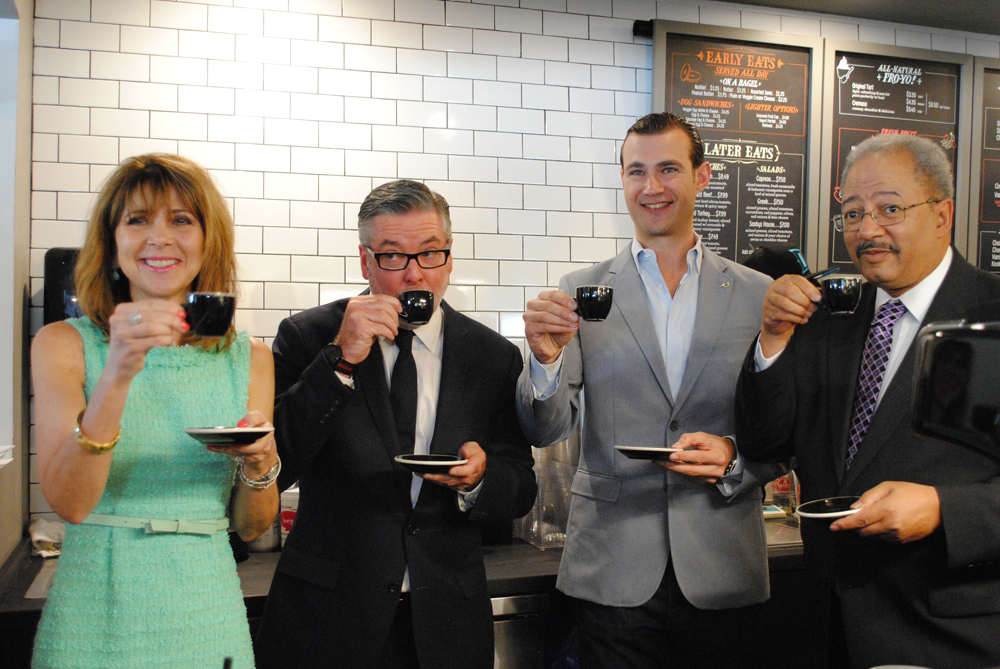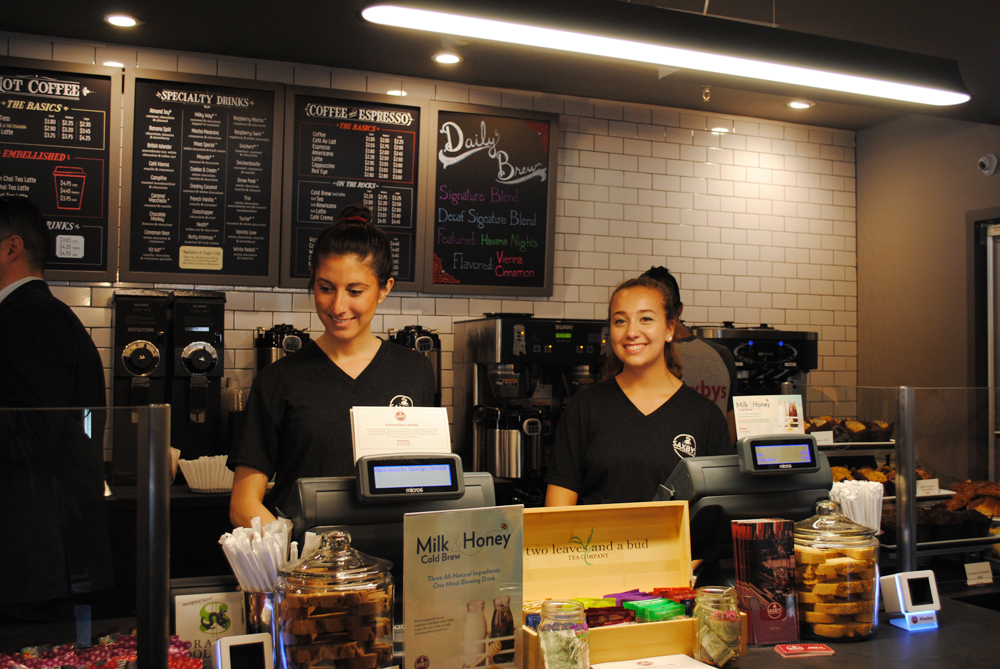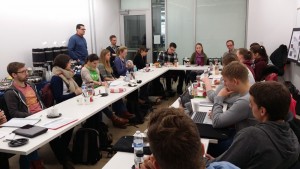Posted on 13 March 2015.

Photo Courtesy: AleksandarCucu
In the upcoming spring term, the Drexel University Center for Hospitality and Sports Management will be offering an exciting new class, spirits and mixology, every Tuesday night. The class will be taught by the skilled Keith Raimondi, who is currently an adjunct professor at Drexel as well as the lead bartender for Townsend, a French restaurant just south of Center City that’s known for its food and fine wine pairings. The class was thought up by Jonathan Deutsch, director of the Center for Hospitality and Sports Management.
In the past decade or so, an emergent trend of serving trendy and specialty cocktails in top restaurants has appeared. Deutsch and his colleagues are helping students to prepare for the competitive hospitality career they have ahead of them with a new “beverage initiative” that will offer many classes focused on the preparation, pairing and serving of beverages, according to Paul O’Neill, the Center’s director of special projects.
“In the past, bar and beverage programs were placed on the back burner and left to be afterthoughts. The truth of the matter is that the restaurant should be thought of as the sum of its parts: Every component of the restaurant is uniquely integral. Every piece from the ingredients the chef uses, where he sources them … the wine, beer and cocktails offered is now under a microscope. The irony is, the bar program is where the largest operating profit margin exists, and for years it was left to dwindle devoid of any inspiration,” O’Neill said. He went on to explain that traditional bartending schools are now outdated and underwhelming.
The competition in Philadelphia’s restaurant scene today is intense; a well-developed beverage education is needed for someone looking to advance their career as a serious mixologist in this city. The beverage initiative is meant to provide an advanced education for anyone looking to get into the beverage industry, as a sales rep, business owner, bartender, distiller and more.
“We would like to help expand the knowledge for those looking to make their way into the field, whether it be a change of career to behind the bar, … or for anyone who has a real passion for the artistry and wants to learn proper technique with premium products,” O’Neill said.
The goals of the course include teaching students not just how to make a classic cocktail, but also for the students to gain a deep understanding of cocktail and mixology fundamentals. Students will be expected to learn the histories of individual spirits, how and why they have been previously used, and to understand the various ways in which those spirits can be incorporated into more complex beverages.

Photo Courtesy: AleksandarCucu
Students will be reading “Imbibe!: From Absinthe Cocktail to Whiskey Smash, a Salute in Stories and Drinks to ‘Professor’ Jerry Thomas, Pioneer of the American Bar” by David Wondrich as part of the course.
But perhaps the most unique and exciting aspect of the course is the list of patented, brand new and creative cocktails the students will craft as a part of their work. The students will also have to project estimated costs to make their specialty cocktails and detail the level of hospitality involved with serving such beverages to the public. O’Neill elaborated that, “anyone can be taught to make the drink and can master the execution, but if it’s done without genuine hospitality then it’s all for naught.”
Students age 21 and up will be eligible to take the course in the spring — the maximum enrollment listed on the term master schedule is 10 students. However, this class is also available in the spring to the public community. For $595, members of the surrounding community, not currently enrolled as Drexel students, can enroll in the class.
Currently, the course has sold out to non-student participants. The immediate high popularity of the course, O’Neill said, is leading the Center to discuss possibly opening the course again in the summer. Most likely the course will run again in successive terms. “The popularity within the Center and the quickness in which it sold out to the public let us know we have something special happening here,” O’Neill said.
Raimondi, the professor for the course, has been actively involved in the Center for Hospitality and Sports Management since first becoming an adjunct professor at Drexel. Raimondi’s history includes time working as an ambassador for Beefeater Gin, a bartender in Jose Garces’ restaurants — JG Domestic, Village Whiskey and Chifa — and also Lemon Hill and currently Townsend. He is known for bringing inventive cocktails to the forefront of restaurants’ reputations. In addition to his time working with mixology outside of Drexel, Raimondi has also been quite involved at the University. Chef Mike Traud, program director for Hospitality and Tourism Management at Drexel, brought Raimondi on as a relevant industry leader to help enhance the programs offered through the Center.
Raimondi was a panelist for the “Old Fashioned” demonstration in the inaugural Chef’s Conference, and also helped organize the second Annual Chef’s Conference, which took place this past January. Raimondi organized a two-hour panel and demonstration on distillation and fermentation at the conference and used his connections to the beverage industry to bring in several professionals to speak at the event, as well as sponsors.
Despite a lack of college-level formal teaching experience, Raimondi’s trade has exposed him to several teaching opportunities. O’Neill explained that “in the restaurant and beverage trade we are constantly teaching and attempting to stay ahead of the curve with new products, techniques, and better business practices.”
O’Neil said the course will award students “a certificate of completion when one finishes the classes required for the beverage institute that will be based on the formidable reputation we have been able to build in our short time as a Center for Hospitality within the restaurant industry.” Drexel’s Center for Hospitality and Sport Management holds a reputation that is rapidly growing in renown in the culinary and hospitality industries. This reputation, coupled with completion of the spirits and mixology course, along with other beverage-focused courses will provide a formidable basis for students to take with them into the beverage and cocktail industry.
The post Mixology class offers unique experience for both students and community appeared first on The Triangle.

